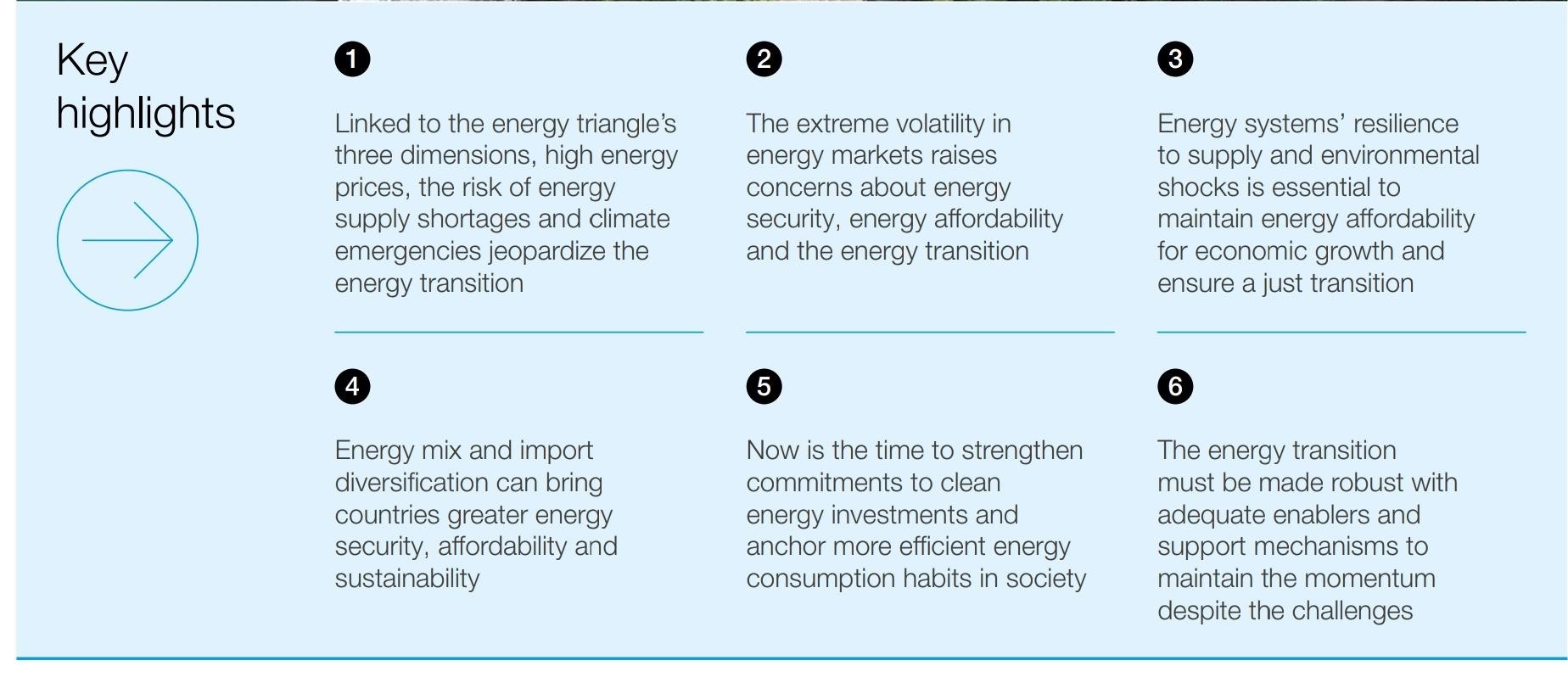[ad_1]
GS Paper 3:
Topics Covered: Infrastructure- energy.
It is an annual country benchmarking report by the World Economic Forum (WEF).

Key findings:
- The report found that energy transition is not matching with the growing urgency for change.
- Energy affordability, energy security, and sustainability are becoming more important than ever.
- Energy unaffordability is threatening the goal of fair and just transition.
- There is a lack of energy diversity.
Key recommendations:
- The report called for urgent action by both public and private sectors to ensure resilient energy transition.
- A comprehensive approach with a proper timeline is critical to achieving long-term climate goals.
- The governments should prioritize access to affordable energy for all. Energy equity can be ensured with the help of direct benefits transfer (DBT) and other support measures.
- To diversify, import-dependent countries must try to import energy from many countries and not overly depend on a few countries.
- Domestic energy can be diversified with low-carbon alternatives which make countries self-reliant and ensure energy security.
- Regulatory frameworks need to be made robust to attract investments in clean energy and to ensure that commitments turn into legally binding frameworks.
- Decarbonizing industries are critical to the energy transition.

Insta Curious:
Have you heard about the great reset? Reference: read this.
InstaLinks:
Prelims Link:
- WEF- structure, objectives and reports.
- ETI- top performers and worst performers.
- India’s per capita energy consumption.
- Energy production in India- sources.
- Renewable vs nor renewable energy sources in India.
Mains Link:
Examine the constraints for India in its transition towards a clean energy system. Also, suggest measures to overcome them.
[Q.5) Fostering Effective Energy Transition 2022 report was released recently by:
-
-
- World Economic Forum.
- UNCCD.
- FAO.
- None of the above. ]
-
Sources: Business Standard.
[ad_2]

